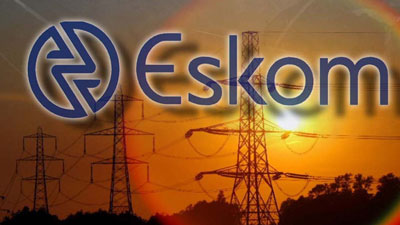
The South African Deputy President, David Mabuza has said that the country’s national electricity utility, Eskom, has proposed extra 8,000 megawatts (MW) of clean energy projects over the next two to five years to reduce load shedding.
Mabuza made this known at the country’s National Assembly, the lower house of Parliament.
He said that the load shedding is mainly due to breakdowns of the old and ageing power generation infrastructure.
He said South Africa has an “immediate need” for 4,000 MW to 6,000 MW additional generation capacity per year to provide generation capacity surplus on the system.
“To allow maintenance to improve reliability and predictability of its coal-fired power stations, which account for most of Eskom’s generation capacity.
“Eskom has a total nominal capacity of 45,117 MW, however, ageing power stations, and poor maintenance, among others, force the main electricity provider in the country to implement load shedding now and then.”
Mabuza said the proposed clean energy projects include greenfield renewables and gas projects, as well as coal power plant repurposing.
“This is part of the energy transition strategy of Eskom, which has proposed a holistic approach to decarbonisation and environmental compliance by accelerating the retirement of ageing and unreliable coal plants.
“Other efforts by the government include various considerations to speed up the acquisition of independent power producers and to reduce further red tape.”
In a related development, Turkey and Venezuela have signalled their intention to forge a closer partnership as President Recep Tayyip Erdoğan and his Venezuelan counterpart Nicolás Maduro signed several agreements in Ankara.
Both sides stressed the importance of improved bilateral relations, with Maduro calling Erdoğan his “brother” in a tweet, while the Turkish president condemned the “unilateral” sanctions on Venezuela in a tweet written in Spanish.
The U.S. had imposed a whole range of sanctions against the authoritarian Venezuelan leadership.
Maduro, unlike most other Latin American leaders, was not invited to attend the Summit of the Americas in Los Angeles this week by U.S. President Joe Biden.
The U.S. government also declined to invite the authoritarian leaders of Cuba and Nicaragua to the summit, which caused Mexican President Andrés Manuel López Obrador, Bolivian President Luis Arce and Honduran President Xiomara Castro to cancel their own planned participation.
Venezuela had been in a severe political and economic crisis for years, experiencing dire food, medicine and fuel shortages despite the country’s enormous oil wealth, forcing millions of Venezuelans to leave the country.

